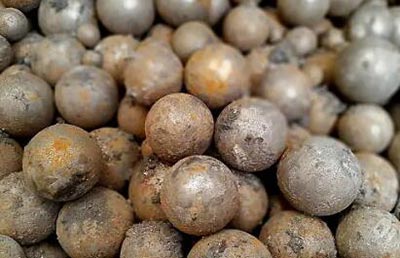Forged Steel Ball Price: What You Need to Know
Views: 293 Update Date:Oct 09 , 2024
In the world of industrial manufacturing, precision and durability are paramount. Enter the unsung hero of many mechanical systems: the forged steel ball. These tiny spheres of strength play a crucial role in countless applications, from automotive parts to heavy machinery. But what factors influence the price of a forged steel ball, and why should you care?
2. Process: Forged under immense pressure and heat
3. Finish: Precision-ground to exact specifications
4. Quality Control: Rigorous testing for uniformity and strength
- Size: Larger balls typically cost more
- Material grade: Higher-quality alloys command premium prices
- Quantity: Bulk orders often come with discounts
- Precision requirements: Tighter tolerances mean higher prices
- Surface finish: Smoother finishes require more processing
But here's the kicker - investing in high-quality forged steel balls can actually save you money in the long run. How? By reducing maintenance costs and extending the life of your equipment.
Imagine this: You're running a massive industrial operation. Suddenly, a tiny ball bearing fails, bringing your entire production line to a screeching halt. The cost of downtime? Astronomical.
This is why choosing the right forged steel ball is crucial. It's not just about the initial price - it's about:
- Reliability
- Longevity
- Performance under stress
- Consistency in size and shape
Remember, in the world of forged steel balls, you often get what you pay for. Cutting corners on quality can lead to costly failures down the line.
1. Do your research: Compare prices from multiple reputable suppliers
2. Consider total cost of ownership: Factor in potential maintenance and replacement costs
3. Ask about certifications: Look for suppliers who meet industry standards
4. Request samples: Test the balls in your specific application before making a large purchase
5. Negotiate: For large orders, don't be afraid to ask for volume discounts
Conclusion
The price of a forged steel ball is more than just a number - it's a reflection of quality, precision, and reliability. By understanding the factors that influence these prices, you can make informed decisions that will keep your operations running smoothly for years to come.
Remember, in the world of industrial manufacturing, the smallest components often make the biggest difference. Choose wisely, and let those little spheres of steel carry the weight of your success!
Prev: Choosing Forged Steel Balls for Optimal Grinding Performance
Next: The Importance of Forged Steel Ball Sizes
The Anatomy of a Forged Steel Ball
1. Material: High-quality steel alloys2. Process: Forged under immense pressure and heat
3. Finish: Precision-ground to exact specifications
4. Quality Control: Rigorous testing for uniformity and strength
The forged steel ball isn't just any old sphere - it's a marvel of engineering designed to withstand incredible forces and maintain its shape under pressure.

Factors Affecting Forged Steel Ball Prices
The cost of a forged steel ball can vary widely depending on several factors:- Size: Larger balls typically cost more
- Material grade: Higher-quality alloys command premium prices
- Quantity: Bulk orders often come with discounts
- Precision requirements: Tighter tolerances mean higher prices
- Surface finish: Smoother finishes require more processing
But here's the kicker - investing in high-quality forged steel balls can actually save you money in the long run. How? By reducing maintenance costs and extending the life of your equipment.
Why Quality Matters in Forged Steel Balls
Imagine this: You're running a massive industrial operation. Suddenly, a tiny ball bearing fails, bringing your entire production line to a screeching halt. The cost of downtime? Astronomical.
This is why choosing the right forged steel ball is crucial. It's not just about the initial price - it's about:
- Reliability
- Longevity
- Performance under stress
- Consistency in size and shape
Remember, in the world of forged steel balls, you often get what you pay for. Cutting corners on quality can lead to costly failures down the line.
Finding the Best Value in Forged Steel Balls
So, how do you balance quality and cost when shopping for forged steel balls? Here are some tips:1. Do your research: Compare prices from multiple reputable suppliers
2. Consider total cost of ownership: Factor in potential maintenance and replacement costs
3. Ask about certifications: Look for suppliers who meet industry standards
4. Request samples: Test the balls in your specific application before making a large purchase
5. Negotiate: For large orders, don't be afraid to ask for volume discounts
Conclusion
The price of a forged steel ball is more than just a number - it's a reflection of quality, precision, and reliability. By understanding the factors that influence these prices, you can make informed decisions that will keep your operations running smoothly for years to come.
Remember, in the world of industrial manufacturing, the smallest components often make the biggest difference. Choose wisely, and let those little spheres of steel carry the weight of your success!





